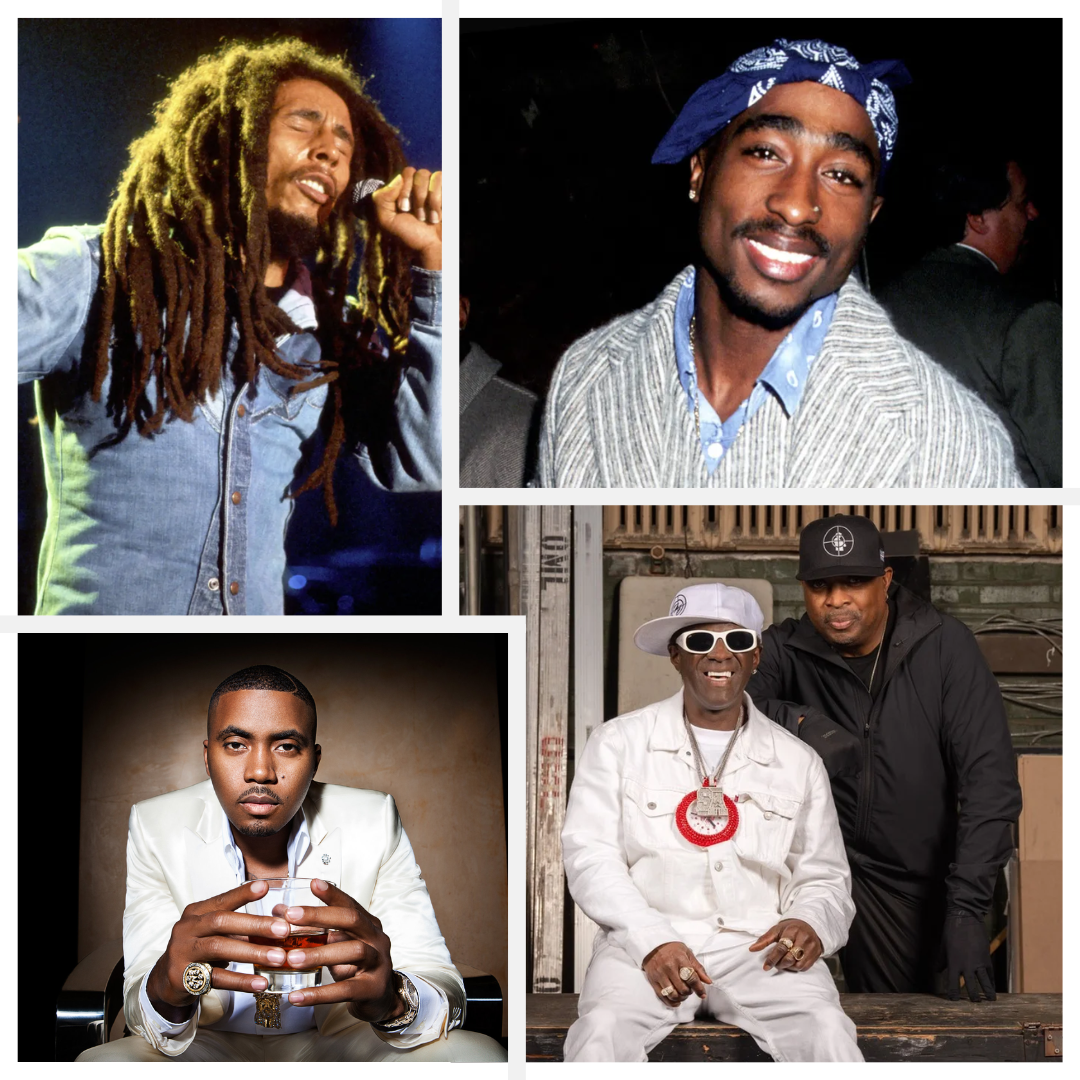
Is the Music We Listen to Empowering Us or Limiting Our Potential?
Share
Author: Nicole Glass

In a time where music has unprecedented reach, its role in shaping Black culture is undeniable. But as we examine the evolution of the messages in the music, a question arises: Is today's music empowering us, or is it limiting our potential? The sounds we once turned to for strength, unity, and social awareness seem to have shifted toward viral soundbites and shallow moments of entertainment.
The Power of Music in Black Culture
Music has always been a cornerstone of Black culture, serving as a voice for the voiceless and a vessel for change. From the politically charged lyrics of N.W.A. to the socially conscious messages of Bob Marley, Tupac, and Ice Cube, music has provided a soundtrack to revolutions, both social and personal. These artists used their platforms not only to entertain but to educate and empower.
In the 1960s and 1970s, soul and reggae artists like Marvin Gaye and Bob Marley addressed societal struggles—songs like *What’s Going On?* and *Get Up, Stand Up* carried powerful messages that questioned authority and encouraged resilience. Fast forward to the 1990s, and hip-hop pioneers like Tupac Shakur and N.W.A. shifted the conversation, using their art to expose the realities of systemic oppression, racial inequality, and inner-city life. Their lyrics weren’t always pretty, but they were necessary. They encouraged the Black community to think, to rise up, and to seek justice.
A Shift in Messaging
But what about today? Much of the mainstream music that dominates the charts lacks the depth we once heard. Viral trends, catchy beats, and easily digestible lyrics have become the currency in today’s music landscape. Gone are the days when artists like Ice Cube fiercely proclaimed, *"I’m not the one!"* Today’s music, while creative and sonically engaging, often prioritizes virality over substance.
It’s hard to ignore the decline in conscious messaging in today’s most popular tracks. The artists who have the most influence often use their platforms for fleeting fame rather than to inspire or challenge the status quo. Some argue that this shift is simply a reflection of the times—social media has created a world of instant gratification, where a viral hook means more than a thought-provoking verse. Yet, the consequences of this change are evident.
The Impact of Lyrics on the Mind
Music, as a medium, has a profound psychological effect on listeners. Studies have shown that repeated exposure to negative or meaningless messages can affect our mindset, emotions, and even our behavior. When today's music focuses on materialism, superficial relationships, or glorifying violence without context, it has the potential to shape young minds in ways that are detrimental to their growth.
Music is powerful—it can heal or harm. When songs no longer focus on uplifting, empowering, or educating, they lose their potential to inspire. The messaging behind music shapes how we see ourselves, our relationships, and the world around us. If the lyrics we consume promote self-destruction or a lack of awareness, how can we expect to build strong, empowered communities?
The Influence of Social Media and Virality
The rise of social media has played a major role in this transformation. Platforms like TikTok and Instagram have turned songs into short, viral moments, where lyrics are stripped of their deeper meaning in exchange for catchy snippets. Artists often create music with the hope that their songs will be the next trending sound, rather than considering the message behind their work. While virality can propel a career, it often sacrifices the substance that once resonated so deeply with listeners.
This isn’t to say that all current artists have abandoned meaningful messaging. Artists like Kendrick Lamar, J. Cole, and Rapsody are exceptions, continuing to use their platforms to elevate consciousness and spark important conversations within Black communities. However, they are a minority in an industry increasingly driven by numbers rather than impact.
Shaping the Future of Black Music
As we move forward, it’s crucial to ask ourselves: How can we encourage a return to meaningful music? How can artists reclaim their role as cultural leaders and community builders?
Black music has always been revolutionary, and it still can be. The next wave of artists has the power to reconnect with the roots of Black music, to challenge the status quo, and to remind us that music can be more than just a momentary distraction—it can be a movement.
Music is one of the most potent forms of communication we have. It’s time we start holding artists accountable for the messages they promote and encourage them to dig deeper. Because music, at its best, doesn’t just make us dance—it makes us think, grow, and rise.
